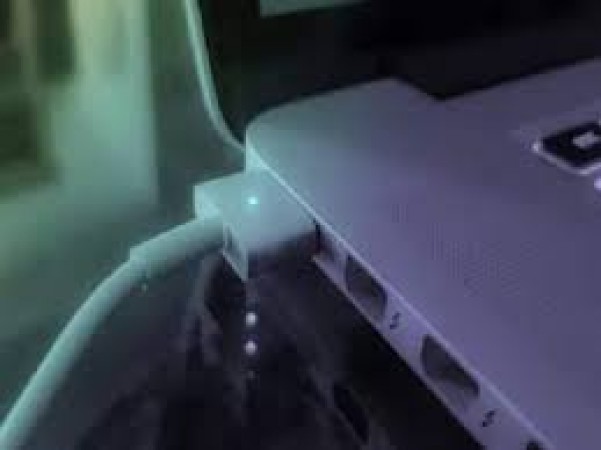
In today's digital landscape, the reliance on laptops for work, study, and leisure has become ubiquitous. A common woe shared by many users is the rapid depletion of laptop battery life. The frustration of running out of power at a crucial moment is a familiar scenario. Fear not! We've compiled an extensive list of practical tips that can help you maximize your laptop battery life and ensure it stands the test of time.
One of the fundamental steps in extending laptop battery life is tweaking power settings. Navigate to the power options on your laptop and select the "Power Saver" mode. This simple adjustment minimizes energy consumption, allowing your battery to last longer between charges.
Keeping a vigilant eye on background processes and applications is crucial. Some programs may continue to consume power even when you're not actively using them. Task Manager (Ctrl + Shift + Esc) can be your ally in identifying and closing such power-hungry applications.
Frequently updating your operating system and applications is not just about staying current with the latest features. Developers often release updates that optimize software performance, including power management. By keeping your software up-to-date, you can enhance your laptop's overall efficiency.
The brightness of your laptop screen plays a significant role in power consumption. Lowering the screen brightness not only saves power but also reduces eye strain. Find the optimal brightness level that balances visibility and battery conservation.
Connected devices such as USB drives and external hard disks draw power from your laptop. Disconnect any peripherals that are not in use to conserve energy and extend battery life.
Both Wi-Fi and Bluetooth functionalities, while essential, can contribute to unnecessary power drainage. Turn them off when not needed, especially when working offline. Consider using Airplane Mode to disable all wireless communication during critical offline tasks.
When working offline, going a step further and using Airplane Mode can be a smart move. This feature ensures that all wireless communication is disabled, preserving your battery life for tasks that matter most.
When planning not to use your laptop for an extended period, consider hibernate mode over sleep mode. While sleep mode still consumes power, hibernate mode saves your current state to the hard drive and then shuts down, using minimal power.
Closing unnecessary applications running in the background can significantly reduce power consumption. Streamline your tasks to those that are essential, ensuring a more efficient use of your laptop's resources.
Limit the number of open tabs in your web browser. Each additional tab consumes system resources, impacting both performance and battery life. A tidy browser session contributes to a smoother experience.
Overheating not only impacts performance but can also accelerate battery degradation. Ensure proper ventilation by placing your laptop on a flat surface and consider using a cooling pad for additional heat dissipation.
If your laptop battery is showing signs of wear, investing in a high-quality replacement can breathe new life into an aging laptop. A reliable battery is essential for prolonged usage without the constant worry of abrupt power loss.
Calibrating your battery helps the operating system gauge its capacity accurately. Follow the manufacturer's guidelines for your specific laptop model to ensure that the battery monitor provides precise information about your remaining battery life.
Configure your web browser for energy efficiency. Some browsers offer settings that reduce the load on your system, resulting in prolonged battery life. This step is particularly relevant for users who spend a significant amount of time browsing the internet.
Minimizing the number of programs that launch at startup not only speeds up your laptop's boot time but also conserves precious battery power. Review and disable unnecessary startup programs to optimize your laptop's performance.
Consider upgrading to a solid-state drive (SSD) if you haven't already. SSDs are not only faster but also more energy-efficient than traditional hard disk drives (HDDs). This upgrade can contribute to improved overall performance and extended battery life.
If you're stepping away from your laptop for a short time, consider using hibernate mode instead of leaving it running. It's a quick way to save power without fully shutting down your system, allowing you to resume your work swiftly when you return.
Believe it or not, the desktop wallpaper you choose can impact power consumption. A dark or dim desktop wallpaper requires less power to display, contributing to overall energy savings over time.
Automatic updates for software and applications can occur at inconvenient times and drain your battery. Take control of your updates by adjusting settings to manual mode, allowing you to choose when to update and when to conserve power.
Frequent email syncing can be a power-hungry process. Adjust your email sync settings to intervals that align with your usage patterns. This small tweak can contribute to significant energy savings throughout the day.
Explore third-party applications designed to optimize battery performance. These apps can automate various power-saving measures, making it easier for you to maintain an efficient and longer-lasting battery life without constant manual intervention.
Understanding how batteries work can guide you in adopting habits that promote long-term health. Familiarize yourself with the specifics of lithium-ion battery care, such as avoiding extreme temperatures and avoiding deep discharges.
Consider using lightweight and energy-efficient operating systems, especially if you have an older laptop. These operating systems are designed to run smoothly on limited hardware, contributing to improved performance and extended battery life. Incorporating these tips into your daily routine can significantly extend the life of your laptop battery. By adopting a proactive approach to power management, you'll enjoy a seamless digital experience without the constant worry of running out of battery at crucial moments.
Govt Shuts Down Over 100 Websites Involved in Illegal Investments and Job Scams
Lalduhoma Set to Take Oath as Mizoram CM on Dec 8
President Murmu, PM Modi honor BR Ambedkar on his death anniversary